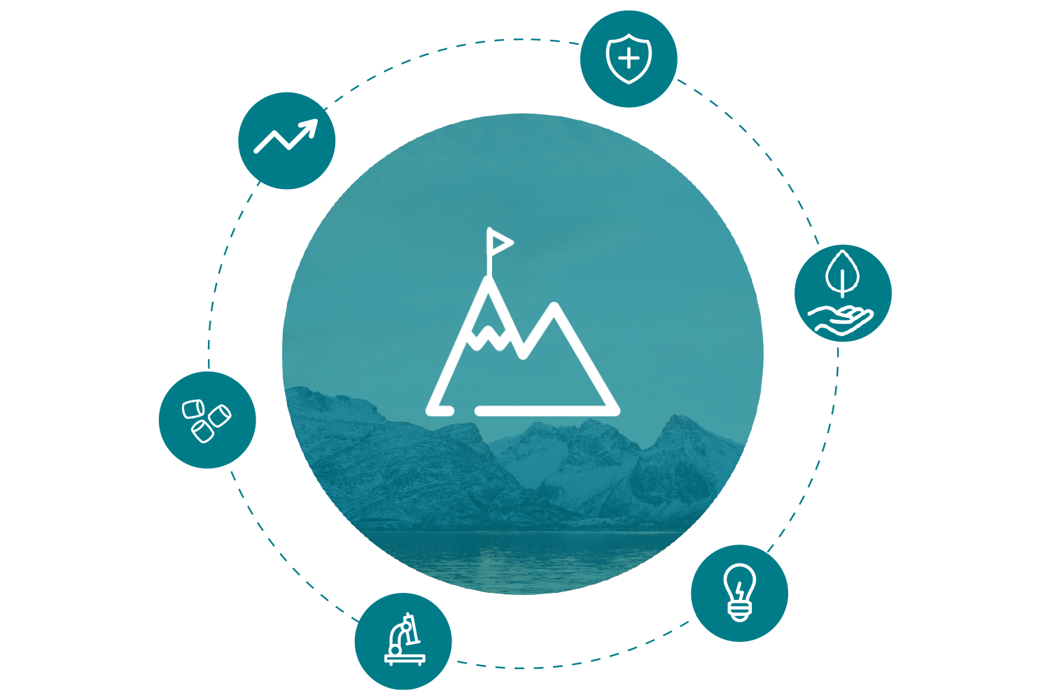Our ambitions
My aquaculture career began at Skretting in 1981 – and now 2021 will be my last year with the group, and also the last annual Sustainability Report that I help deliver, although I am sure that there will be many more to follow.
This organisation has been on a remarkable journey these past 40 years – growing steadily and transitioning from working exclusively with small-scale, family-owned farms into a high-tech industry that’s an integral component of international supply chains. This prominent role has also seen us become a key part of multinational corporations.
Our purpose of ‘Feeding the Future’ is based on the challenge of feeding a global population that’s forecast to reach close to 10 billion people by 2050. This fast growth will lead to a dramatic increase in demand for seafood like fish and shrimp, and this in turn brings the challenge of increasing aquaculture production in a sustainable way. I remain convinced that we can achieve this if the whole value chain pulls in the same direction.

In this regard, our key sustainability ambitions are as follows:
- Skretting will contribute to climate-neutral aquaculture production through feed
- Skretting will foster sustainable aquaculture through increased resource and nutrient efficiency
- Skretting will promote responsible sourcing practices
- Skretting will contribute to improving the health of farmed fish and shrimp
- Support innovation and the development of feed ingredients with a lower environmental or social footprint compared to conventional feed ingredients
- We will have an open mind when finding solutions to emerging sustainability dilemmas
As I reflect on the past 40 years, it’s abundantly clear that Skretting and the wider aquaculture industry have been consistently and proactively willing to meet sustainability challenges head on.
Today, we buy deforestation free soy from Brazil, which comes with a high carbon footprint due to historic deforestation in Brazil. We have no incentive in buying deforestation free soy as the carbon footprint of that product will be the same as from soy from recently deforested areas.
We have high standards for responsible sourcing, and we know we can influence our value chain. In this regard, a crucial question is, when we look at environmental performance in the value chain, when do we stay and try to influence a positive development and when do we walk away?
At Skretting, we think it is important to be open about our dilemmas and try to explain how we will try to find solutions which means we will need to balance between several sustainability issues. It’s also likely that many of our ambitions are aligned with those of agricultural feed producers.
As I reflect on the past 40 years, it’s abundantly clear that Skretting and the wider aquaculture industry have been consistently and proactively willing to meet sustainability challenges head on. My hope is that our sustainability journey and the efforts we have made offer the inspiration for other segments of the feed industry to follow.







